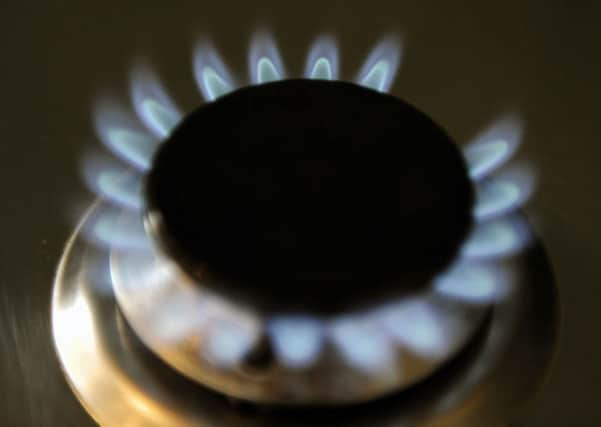Involve everyone in making future energy choices


The UK remains heavily reliant on gas. More than half of Scotland’s total energy consumption can be accounted for by non-electrical heat and 78 per cent of Scottish homes rely on mains gas as their primary heating fuel.
The status quo of natural gas production and usage in Scotland and the wider UK is unsustainable. Production from the North Sea has steadily declined over the past decade to less than a third of its previous level. Greater public awareness surrounding environmental issues, and a Scottish Government commitment to decarbonise the heat system, means that significant changes in how we heat our homes and offices are inevitable.
Advertisement
Hide AdAdvertisement
Hide AdThe Climate Change Act passed by Holyrood sets the government the target of an 80 per cent reduction in greenhouse gas emissions by 2050. However, reducing carbon emissions is only one aspect of the problem facing us; known as the “energy quadrilemma”. For a successful outcome to be reached, environmental sustainability must be addressed in addition to matters of energy security, cost to the consumer and public acceptability. Without all four of these criteria being met, a successful path forward for our energy future seems inconceivable.
Recent public and political discourse, in addition to the moratorium on the process currently in place in Scotland, has placed the issue of hydraulic fracturing in a position of prominence. The issue of whether “fracking” should be permitted has taken centre stage in the energy debate and shifted the focus from the much broader and significant question of how Scotland, and the rest of the UK, should meet its heat demand. For at least a period of several decades, this will involve burning gas. Even if all government targets to decarbonise heat and reduce greenhouse gas emissions are met – which would involve a pace of change that’s without global precedent – natural gas will still be required in the short-to-medium term.
Scotland requires, and will continue to require, gas for the near future. This gas will need to be sourced from somewhere, whether it is through importing from abroad, or from onshore or offshore domestic production. There are no easy solutions to meeting gas demand.
Demand reduction is key, but experience with renewables shows it will require significant government investment to ensure widespread domestic uptake. In addition, whilst demand reduction measures will have a positive effect on fossil fuel consumption for heat, if this is at the expense of increasing electricity demand, it may result in increased levels of fuel poverty and increased burning of fossil fuels for power generation. No silver bullet exists. What is clear is that the path we choose must be one which the Scottish people have chosen to follow. A decision must be reached with the participation of a well-informed public who are given a genuine opportunity to contribute to the decision-making process.
A great deal of uncertainty exists over various areas of the debate, particularly surrounding potential reserves. It is important that both the government and civil society work to provide clarity in areas of doubt in order to provide citizens with the best foundation on which to make informed decisions.
Scotland needs gas to heat its homes, schools and hospitals and it will continue to, over decades to come. There are no simple choices and the decisions we make, or fail to make, will have serious consequences for ourselves and others.
The public should participate in decision-making on Scotland’s energy future; the debate should not narrowly focus on unconventional gas or hydraulic fracturing, but be one where local impacts are weighed up against issues of energy security, carbon emissions and social justice. The decisions that are reached should uphold Scottish values and be in the best interests of the entire country.
• Professor Rebecca Lunn, RSE Fellow and lead author of the RSE report Options for Scotland’s Gas Future, www.royalsoced.org.uk